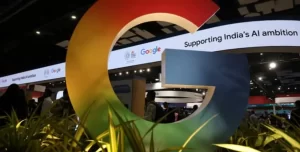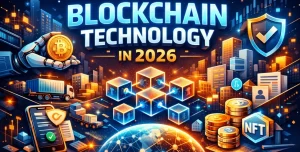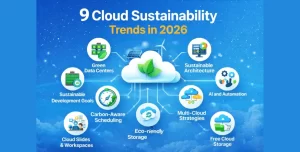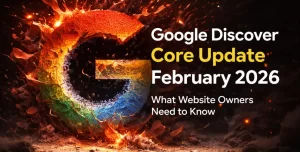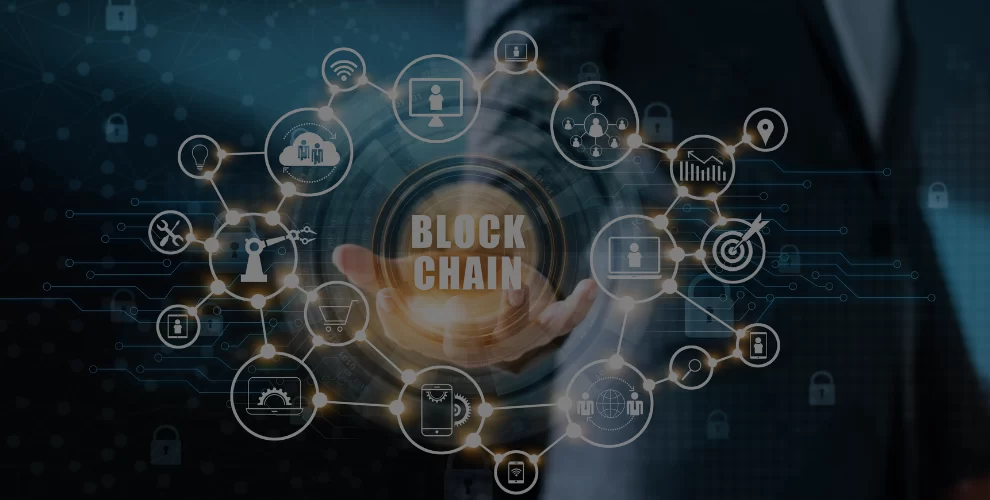
Top 10 Applications of Blockchain Technology in 2024
Table of Contents
Introduction
Welcome to WikiGlitz! Blockchain technology continues to revolutionize various sectors, offering innovative solutions and transforming how businesses operate.
In 2024, blockchain’s potential is being harnessed more than ever before, from finance to healthcare and beyond.
Join us as we explore the top 10 applications of blockchain technology, highlighting real-world examples and their benefits.
Key Takeaways
- Blockchain’s Transformative Power: Discover how blockchain is reshaping industries with enhanced transparency, security, and efficiency.
- Diverse Applications: Learn about the wide range of sectors benefiting from blockchain technology, from finance to healthcare to gaming.
- Future Insights: Understand the future potential of blockchain and its role in driving innovation and sustainability.
Financial Services
Cryptocurrencies and Digital Assets
Blockchain technology has revolutionized the financial sector, starting with cryptocurrencies like Bitcoin and Ethereum.
These digital currencies enable peer-to-peer transactions without intermediaries, offering greater accessibility and security.
Examples:
- Bitcoin: The first and most well-known cryptocurrency.
- Ethereum: Facilitates smart contracts and decentralized applications (dApps).
Payment and Remittance Solutions
Cross-border remittances benefit particularly from blockchain’s ability to facilitate instant transactions with lower fees.
Examples:
- Ripple: A blockchain-based payment protocol for instant cross-border transfers.
- Stellar: A blockchain platform for remittances and micropayments.
Smart Contracts and Decentralized Finance (DeFi)
DeFi protocols facilitate peer-to-peer lending, borrowing, trading, and asset management, offering decentralized alternatives to traditional financial services.
Examples:
- Uniswap: A decentralized exchange for trading cryptocurrencies.
- Compound: A DeFi platform for lending and borrowing assets.
Healthcare
Electronic Health Records (EHRs)
This ensures data integrity, privacy, and interoperability.
Examples:
- Medicalchain: Uses blockchain to manage and share electronic health records securely.
- Patientory: A blockchain-based platform for managing patient data.
Drug Traceability
Improves accountability and transparency in supply chains.
Examples:
- Chronicled: Uses blockchain for supply chain solutions in the pharmaceutical industry.
- Modum: Provides blockchain-based temperature monitoring for pharmaceuticals.
Supply Chain Management
Provenance Tracking and Traceability
This enhances transparency, authenticity, and accountability.
Examples:
- IBM Food Trust: Uses blockchain to improve food safety and traceability.
- Everledger: Tracks the provenance of diamonds and other valuable assets.
Supply Chain Automation
Smart contracts automate contractual agreements and business processes in the supply chain. This reduces transaction costs, minimizes errors, and accelerates transaction processing.
Examples:
- VeChain: A blockchain platform for supply chain solutions.
- Provenance: Uses blockchain to verify the origin and journey of products.
Voting Systems
Tamper-Proof Voting Records
Blockchain provides a secure and tamper-proof ledger for recording voting transactions, ensuring the integrity and confidentiality of votes cast.
Examples:
- Follow My Vote: A blockchain-based secure online voting platform.
Transparent and Auditable Elections
It enables transparency of election processes.
Examples:
- Agora: A blockchain-based voting solution for transparent elections.
- BitCongress: Uses blockchain to create a transparent voting platform.
Real Estate
Smart Contracts for Real Estate Transactions
Smart contracts automate and enforce contractual agreements in real estate transactions, reducing transaction costs and accelerating processing.
Examples:
- Propy: A blockchain-based real estate marketplace.
- Harbor: Facilitates the tokenization of real estate assets.
Fractional Ownership and Investment
It facilitates ownership of real estate properties.
Examples:
- RealT: Tokenizes real estate properties for fractional ownership.
- Brickblock: A platform for investing in tokenized real estate assets.
Food Industry
Supply Chain Traceability
Blockchain enables end-to-end traceability of food products, providing a transparent and auditable record of product provenance.
Examples:
- IBM Food Trust: Enhances transparency and traceability in the food supply chain.
- TE-FOOD: Uses blockchain to track food products from farm to table.
Food Safety and Quality Assurance
Blockchain improves food safety by providing real-time monitoring and verification of food safety practices and standards.
Examples:
- Walmart: Uses blockchain to trace the origin of food products.
- Nestlé: Implements blockchain for supply chain transparency and food safety.
Jewelry Industry
Proof of Authenticity
It provides a safe way for verifying authenticity of jewelry.
Examples:
- Everledger: Tracks the provenance of diamonds and other valuable assets.
- IBM TrustChain: Ensures the authenticity and provenance of jewelry.
Conflict-Free Sourcing
Blockchain helps in combating the issue of conflict diamonds by ensuring responsible sourcing practices.
Examples:
- Brilliant Earth: Uses blockchain to ensure conflict-free diamonds.
- De Beers: Implements blockchain for traceability and ethical sourcing.
Carbon Accounting
Transparent Emissions Tracking
Blockchain enables transparent tracking of carbon emissions throughout the entire supply chain, facilitating accountability and targeted mitigation strategies.
Examples:
- CarbonX: Uses blockchain for carbon offset tracking.
- Energy Web Foundation: Provides blockchain solutions for energy sector sustainability.
Decentralized Carbon Registries
Blockchain enables the creation of decentralized carbon registries, providing a tamper-proof record of emissions data.
Examples:
- Veridium: Uses blockchain to track carbon credits.
- Poseidon: Implements blockchain for carbon offsetting and sustainability.
Gaming
Player-Driven Economies
It allows players to take a part in games where they can be able to trade, and monetize.
Examples:
- Axie Infinity: A blockchain-based game with a player-driven economy.
- Enjin: Provides blockchain-based solutions for gaming assets.
In-Game Payments and Micropayments
Blockchain facilitates in-game payments and micropayments, enabling fast, secure, and low-cost transactions using cryptocurrencies or tokenized assets.
Examples:
- Decentraland: A virtual world with blockchain-based in-game payments.
- GameCredits: Provides a blockchain-based payment solution for games.
Retail
Product Authentication and Anti-Counterfeiting
Blockchain provides a secure platform for verifying the authenticity of products, ensuring they are genuine and combating counterfeiting.
Examples:
- VeChain: Uses blockchain for product authentication and anti-counterfeiting.
- Provenance: Provides blockchain-based solutions for product verification.
Inventory Management and Reconciliation
It effectively streamlines inventory management.
Examples:
- Walmart: Implements blockchain for inventory tracking and management.
- Carrefour: Uses blockchain for supply chain transparency and inventory management.
Conclusion
From finance to healthcare to gaming, blockchain’s applications are vast and impactful.
Stay tuned with WikiGlitz for more insights and updates on blockchain and other groundbreaking technologies!
FAQs
What is blockchain technology?
Blockchain is a decentralized digital ledger that records transactions across multiple computers, ensuring security and transparency.
How does blockchain improve supply chain management?
Blockchain provides end-to-end traceability and transparency, ensuring product authenticity and reducing inefficiencies.
What are smart contracts?
Smart contracts are self-executing agreements coded on blockchain platforms, automating and enforcing contractual agreements without intermediaries.
How is blockchain used in the healthcare industry?
Blockchain enhances data security, interoperability, and patient-centric care by securely storing and sharing electronic health records and ensuring drug traceability.
What is the future of blockchain technology?
The future of blockchain looks promising with continued advancements and adoption across various sectors, driving innovation and sustainability.
Want to keep up with our blog?
Our most valuable tips right inside your inbox, once per month.
Error: Contact form not found.
WikiGlitz Team
Welcome to WikiGlitz, your ultimate destination for tech insights and innovation. Our expert team is dedicated to delivering free resources and professional advice on various technology topics, including Artificial Intelligence, Cyber Security, Cloud Computing, and more. We strive to empower our readers with up-to-date information and practical guidance, ensuring you stay ahead in the rapidly evolving tech landscape. At WikiGlitz, we are passionate about making complex technology accessible to everyone. Our team of seasoned experts curates content that is both informative and engaging, helping you understand and leverage the latest tech trends. Whether you're a tech enthusiast or a professional, WikiGlitz is your go-to source for reliable, expert-driven content. Join us on this journey to explore and embrace the future of technology.


